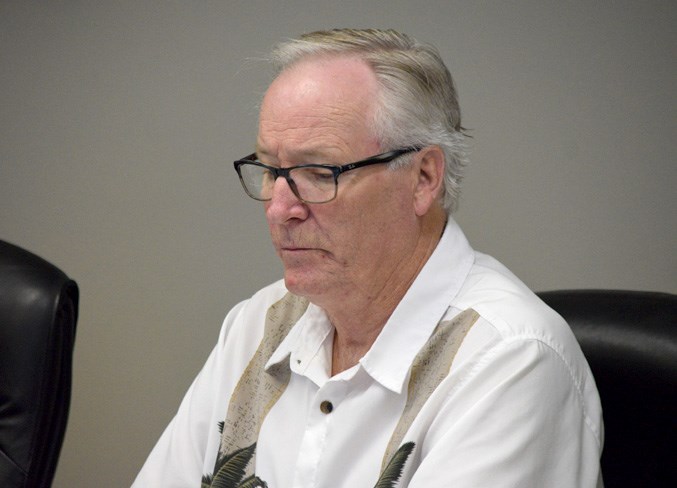Although County of Barrhead councillors agree with the spirit of Bill 20,1 they believe not enough consideration has been given to the business community.
That’s the consensus of councillors following a discussion about the Bill 201, also known as the Employment Standards (Firefighter Leave) Amendment Act during their June 5 meeting.
If passed, the bill would give part-time firefighters who have been employed for at least 90 days by the same employer the ability to take occasional unpaid leave to assist in fire services without the fear of losing their jobs. It also stops employers from refusing to employ part-time firefighters or hindering their volunteer duties.
The bill was resurrected from legislation (Bill 212) Anderson introduced in December 2016, which died on the order paper. Its current incarnation passed first reading in March and has been referred to the Standing Committee on Alberta’s Economic Future, which invited interested parties to submit their comments. The deadline was June 6.
Coun. Darrell Troock asked for the topic of United Conservative Party (UCP) Highwood MLA Wayne Anderson’ private member’s bill to be added to the agenda.
“I’m in total agreement with what they are doing. Firefighters jobs should be protected in this bill, but where I think they fell short is that nothing was included to protect industry,” he said, adding he forwarded his concern to Barrhead-Morinville-Westlock MLA Glenn van Dijken via e-mail. van Dijken is deputy chair of the 15- member committee.
Troock said in the last few days he talked to numerous businesses, such as Pembina West Co-op and Small Power Barrhead Ltd. to ask their opinions about the bill and how they could potentially be impacted.
By and large, he said, they supported their employees’ activities with the fire department, regardless of the potential legislation, but admitted when they left during a workday it impacts their business.
Their response depended not only on the type of business, but its size, Troock said.
“For the Co-op [general manager Allan Cote] said cost wasn’t a big factor, but rather the fact that when firefighters leaving during their shift, it left them short-handed,” he said, noting Cote told him for the most part they were able to absorb their absence.
Ron Nanninga at Small Power said, while he supported his employees who needed to leave work for fire department calls, it did put the business at a disadvantage.
Because they have a smaller staff, and their peak season coincides with fire season, having workers leave for fire responses often was difficult to absorb.
“Not only is the work not getting done but also you are missing a man to help deal with customers,” Nanninga said to Troock.
However, he said not all employers were as accepting.
“I don’t want to give the name of the company, but their statement was that if two applicants came in and one was a volunteer firefighter, he wouldn’t get the job and as someone who supports firefighters and lives in a community who depends on them that absolutely terrifies me,” Trook said, noting luckily that response was in the minority.
He then suggested to help soften the blow legislation could offer incentives to businesses who allow their workers to leave as part of their volunteer firefighter duties.
“Something like a break in their WCB or taxes,” Troock said. “I understand the bill and agree protection is needed, but at the same time, we have to realize that we are in small-town Alberta and these guys leaving, leaves jobs unattended. I don’t want to see them accept this unconditionally, I want to make sure industry’s side is considered because it is a big commitment for a business.”
He used the example of Stephani Motors who at one time had three volunteer firefighters on staff.
“For a routine call, they [volunteer firefighters] can be gone two or three hours, for something major like a fire it is a lot more. When you get 300 calls a year that is a lot of man hours gone from a business,” he said.
Coun. Walter Preugschas disagreed with the mandatory nature of the legislation, feeling business needed to be free to their operation as they saw fit.
Reeve Doug Drozd questioned whether the bill would have the result its author attended.
“It might make it harder to keep volunteers because it might make their attendance mandatory. Fire departments and municipalities might say it is easier just to go with full-time firefighters and we all know what the costs are associated with that.”



